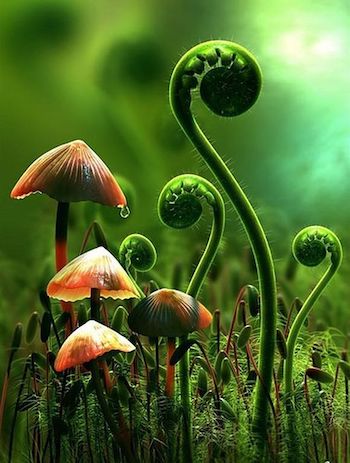The Benefits of Microdosing for Depression: Insights from Scientific Studies
In recent years, microdosing has gained significant attention as a potential treatment for depression. Microdosing involves taking very small, sub-perceptual doses of psychedelic substances, Unlike the higher doses used for recreational or therapeutic psychedelic experiences, microdosing aims to harness the benefits of these substances without inducing significant alterations in consciousness. Emerging research and anecdotal evidence suggest that microdosing may offer a promising alternative for those struggling with depression.
What is Microdosing?
Microdosing typically involves taking doses of psychedelic substances that are approximately 1/10th to 1/20th of a standard recreational dose. These doses are low enough to avoid the hallucinogenic effects but are believed to subtly influence brain function and mood.
Mechanisms of Action
The precise mechanisms by which microdosing exerts its effects are still under investigation, but several hypotheses have been proposed:
- Neuroplasticity: Psychedelics are known to promote neuroplasticity, the brain's ability to reorganize and form new neural connections. This could potentially help alleviate the rigid, negative thought patterns characteristic of depression.
- Serotonin Receptor Activation: Both mescaline and psilocybin act on serotonin receptors, particularly the 5-HT2A receptor, which plays a crucial role in mood regulation. By modulating serotonin activity, microdosing might improve mood and emotional resilience.
- Reduced Inflammation: Some studies suggest that psychedelics have anti-inflammatory properties, which could contribute to their antidepressant effects, given the link between inflammation and depression.
Scientific Studies on Microdosing and Depression
While research on microdosing is still in its infancy, several studies have begun to explore its potential benefits for depression:
- Fadiman and Korb Study (2019): One of the earliest studies on microdosing was conducted by psychologist James Fadiman and Adam L. Korb. Their research, which involved self-reported data from hundreds of individuals, suggested that microdosing could lead to improvements in mood, creativity, and productivity. Participants also reported reduced symptoms of depression and anxiety.
- Szigeti et al. Study (2021): A study published in "Psychopharmacology" by Balázs Szigeti and colleagues used a self-blinding citizen science approach to investigate the effects of microdosing. Participants who took microdoses of psychedelics reported greater well-being and reductions in depression and stress compared to those who took placebos.
- Polito and Stevenson Study (2019): Published in the journal "PLOS ONE," this study conducted by Vince Polito and Richard Stevenson examined the psychological effects of microdosing over a six-week period. The researchers found that microdosers experienced reductions in depression and stress, along with increased focus and mindfulness.
- Johns Hopkins University Research: Although not exclusively focused on microdosing, research at Johns Hopkins University has demonstrated the antidepressant potential of psilocybin. Their studies on full-dose psilocybin therapy for treatment-resistant depression have shown significant, lasting improvements in depressive symptoms. These findings provide a foundation for further exploring the benefits of lower doses.
Potential Benefits of Microdosing for Depression
Based on existing research and anecdotal reports, the potential benefits of microdosing for depression include:
- Improved Mood: Many microdosers report feeling happier, more optimistic, and emotionally balanced.
- Enhanced Creativity and Productivity: Microdosing is often associated with increased creativity, problem-solving abilities, and productivity, which can contribute to a greater sense of purpose and achievement.
- Reduced Anxiety and Stress: Some individuals find that microdosing helps them manage anxiety and stress, leading to a calmer and more focused mind.
- Greater Mindfulness and Presence: Microdosing may promote mindfulness and a greater sense of being present, which are valuable tools for combating depressive rumination.
- Enhanced Emotional Resilience: By fostering a more positive outlook and greater emotional stability, microdosing could help individuals better cope with life's challenges.
While the potential benefits of microdosing are promising, it is important to approach this practice with caution:
- Individual Variability: Responses to microdosing can vary widely among individuals. What works for one person may not work for another, and some people may experience adverse effects.
- Lack of Long-Term Research: The long-term effects of microdosing are still unknown. More rigorous, controlled studies are needed to fully understand its safety and efficacy.
- Professional Guidance: If considering microdosing, it is advisable to consult with a healthcare professional, especially if you have a history of mental health issues or are taking other medications.
Microdosing represents a novel and intriguing approach to managing depression. Early research and anecdotal evidence suggest that it may offer a range of benefits, from improved mood and emotional resilience to enhanced creativity and mindfulness. However, further scientific investigation is necessary to fully understand its effects and potential risks. As interest in psychedelic research continues to grow, microdosing may become an increasingly valuable tool in the fight against depression, offering hope and healing to those who need it most.

Please note that I only offer coaching and guidance with this practice, I do not provide access to any substances that are prohibited by the laws of your country! There is a long list of webshops selling magic truffles legally in erupean countries like Netherlands , Spain and many other countries